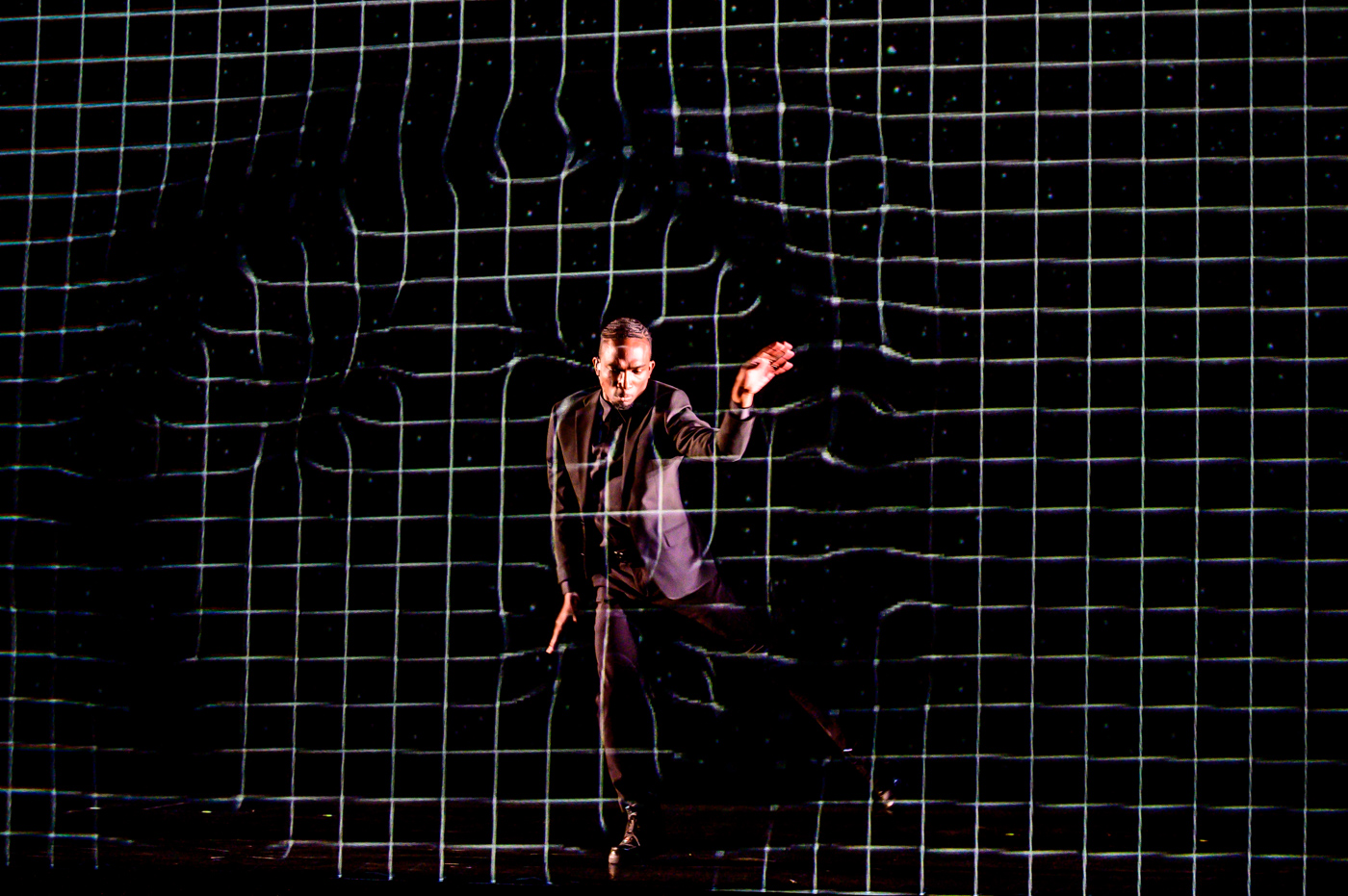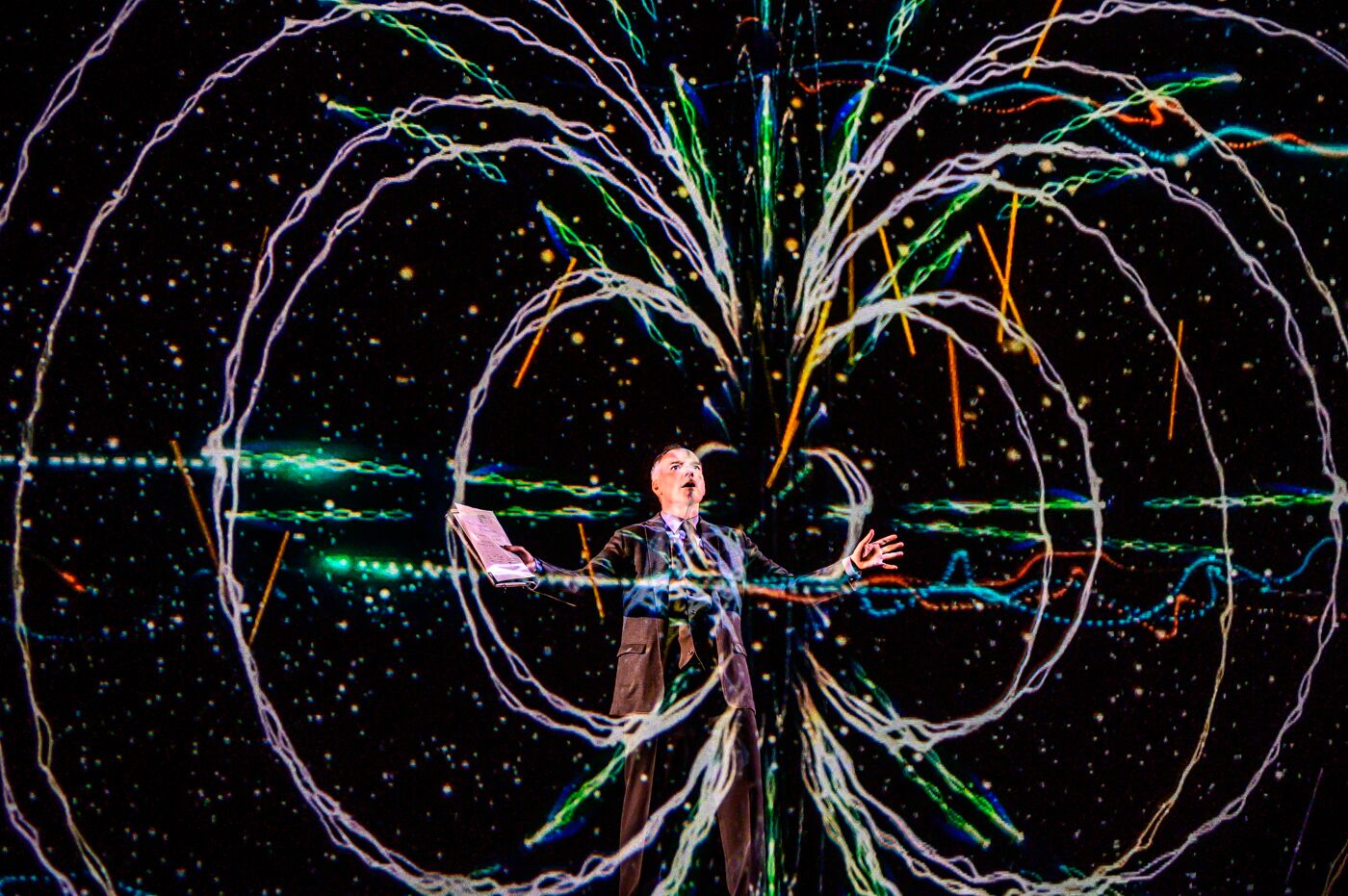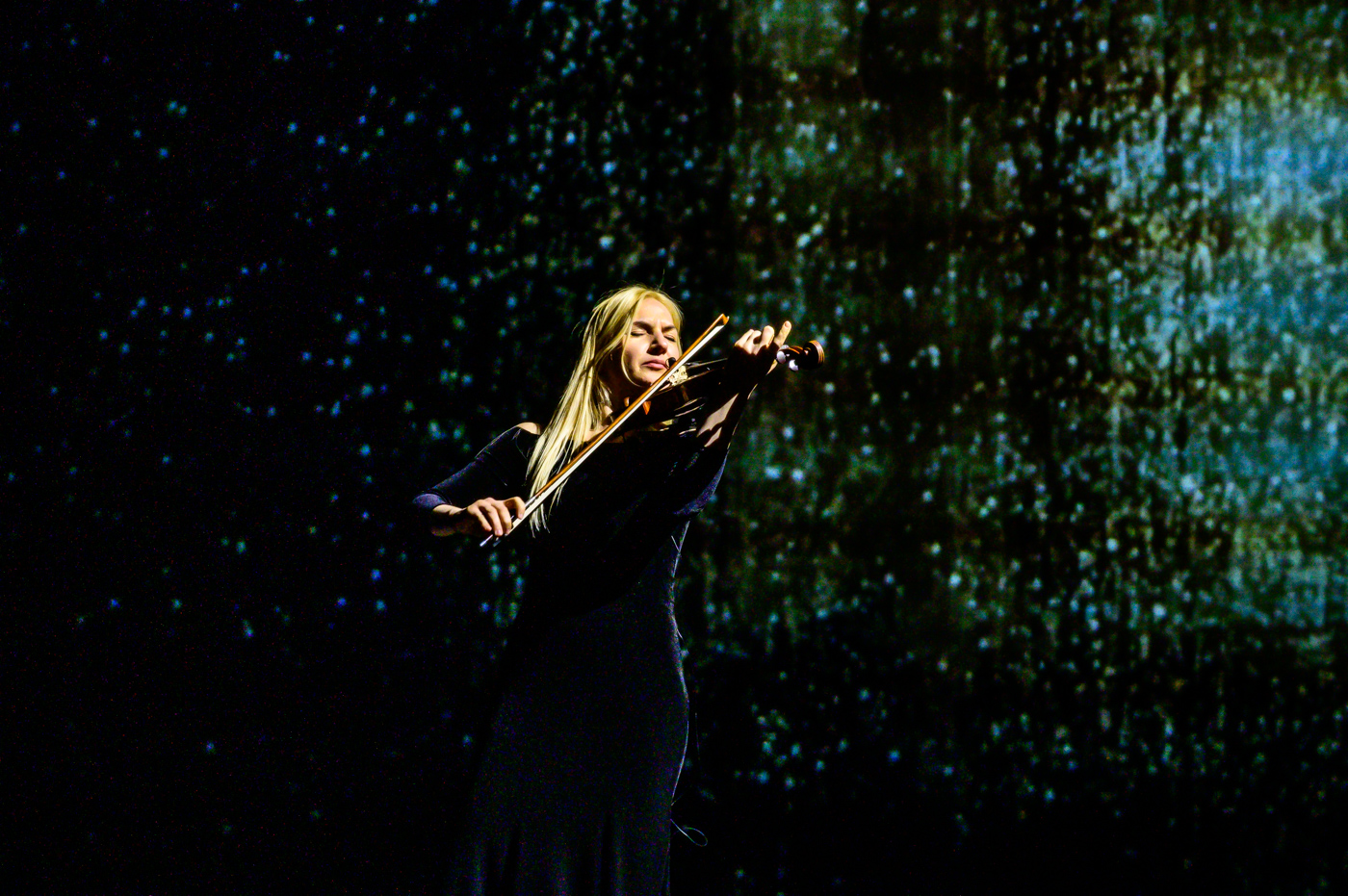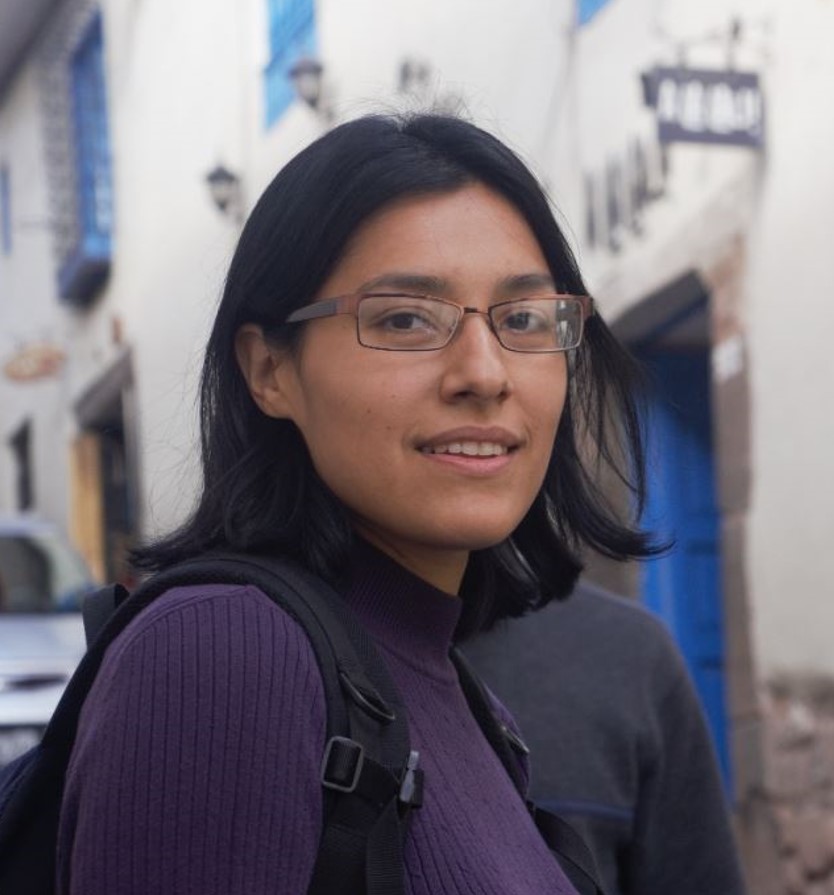'An Obsession of Einstein' Dances Through Space-Time on Stage at the World Science Festival: Watch on PBS Tonight
Theoretical physicist and television host Brian Greene narrates the show.
NEW YORK — A dancer gliding across a stage was so well synced with the projection around him that the performer appeared to trigger ripples coursing through the fabric of space-time. This was one of the many scenes from the May 22 production of "Light Falls: Space, Time, and an Obsession of Einstein" that illuminated the nimble imagination of Albert Einstein.
Movement specialist Drew Dollaz was joined by actors Michael Winther (who played Einstein), Francesca Faridany, Brian Avers and violinist Joanna Kaczorowska to dramatize host Brian Greene's narration in a Manhattan theater as part of the opening celebrations of the 2019 World Science Festival.

The show will be broadcast on PBS at 10 p.m. EDT Wednesday (May 29), the 100th anniversary of the solar eclipse experiment that proved an object as massive as the sun could warp the fabric of space-time around it, bending starlight that passed near the sun on its way to Earth. These observations cemented Einstein as a world-renowned genius.
Related: Relativity: The Thought Experiments Behind Einstein's Theory

Greene wears several hats: He is a theoretical physicist, television host and Columbia University professor. And alongside his wife, journalist Tracy Day, Greene co-founded the World Science Festival 11 years ago.
Day was the first to speak on the Jazz at Lincoln Center stage Wednesday night, sharing that the ensemble cast would be speaking lines from historical records.

The performance was a television educational program come to life. In much the way that science documentaries feature actors that add faces to important moments, Faridany and Avers play the mathematicians and physicists that Einstein communicated with during the years leading up to his solidification of both the Theory of Special Relativity and the Theory of General Relativity.
Get the Space.com Newsletter
Breaking space news, the latest updates on rocket launches, skywatching events and more!
Winther's monologues to the Prussian Academy of Sciences are especially interesting, because the dark projection of the academy's auditorium and the actor's calm, almost unassuming performance makes Einstein appear like a vulnerable ancient Greek orator on the cusp of greatness.
- Historic First Images of a Black Hole Show Einstein Was Right (Again)
- Best Science Fiction Books
- Here Are the Most Amazing Photos of the 2017 Total Solar Eclipse
Follow Doris Elin Salazar on Twitter @salazar_elin. Follow us on Twitter @Spacedotcom and on Facebook.
Join our Space Forums to keep talking space on the latest missions, night sky and more! And if you have a news tip, correction or comment, let us know at: community@space.com.

Doris is a science journalist and Space.com contributor. She received a B.A. in Sociology and Communications at Fordham University in New York City. Her first work was published in collaboration with London Mining Network, where her love of science writing was born. Her passion for astronomy started as a kid when she helped her sister build a model solar system in the Bronx. She got her first shot at astronomy writing as a Space.com editorial intern and continues to write about all things cosmic for the website. Doris has also written about microscopic plant life for Scientific American’s website and about whale calls for their print magazine. She has also written about ancient humans for Inverse, with stories ranging from how to recreate Pompeii’s cuisine to how to map the Polynesian expansion through genomics. She currently shares her home with two rabbits. Follow her on twitter at @salazar_elin.









